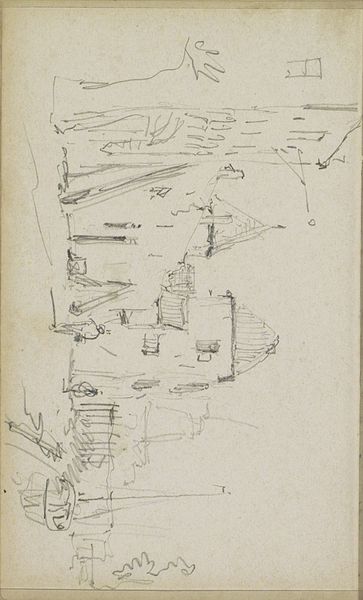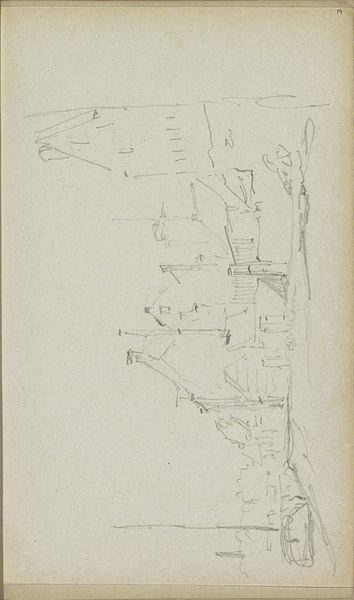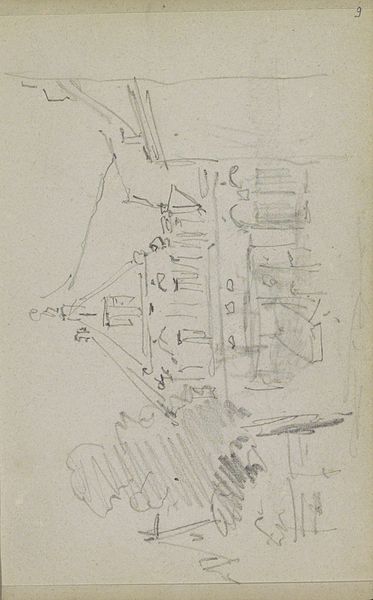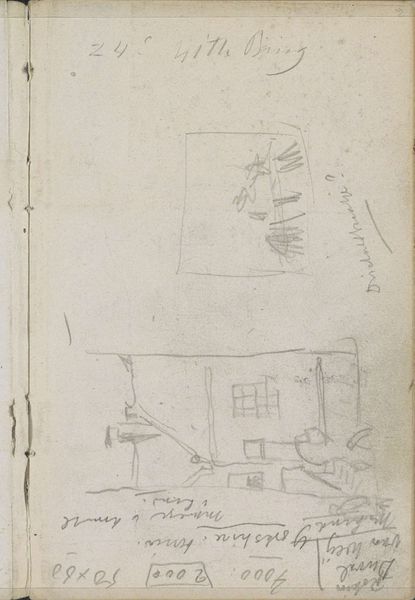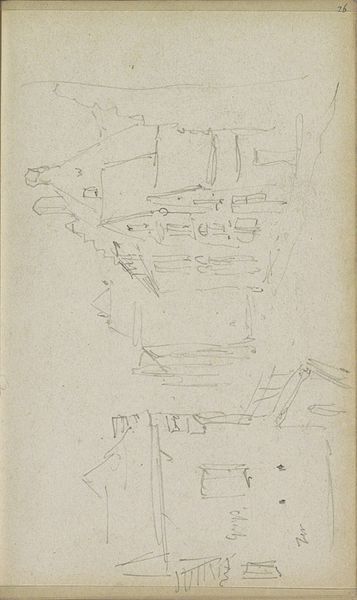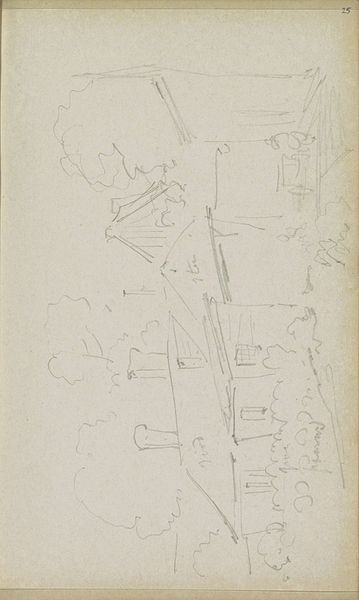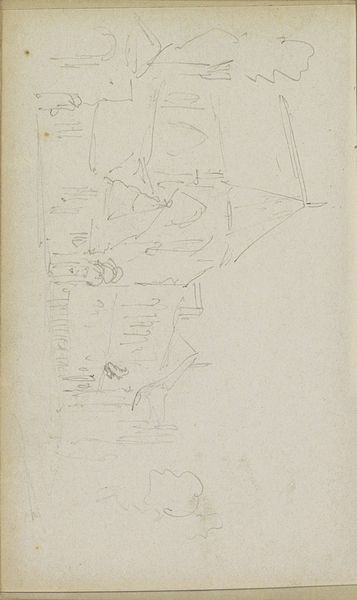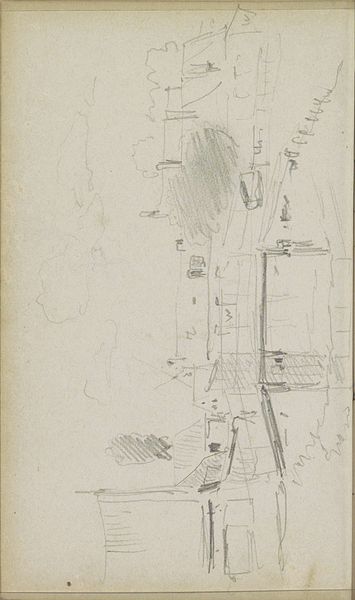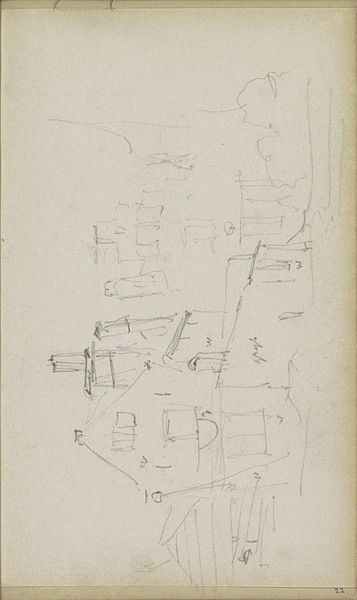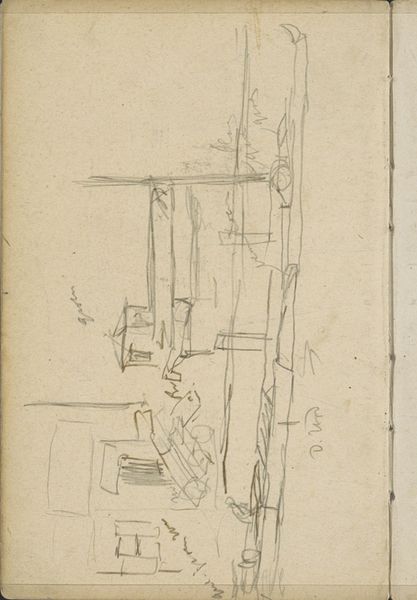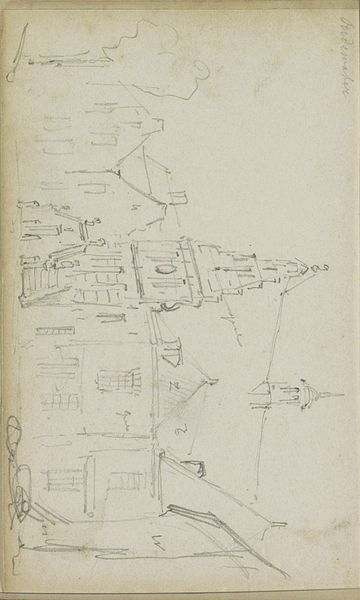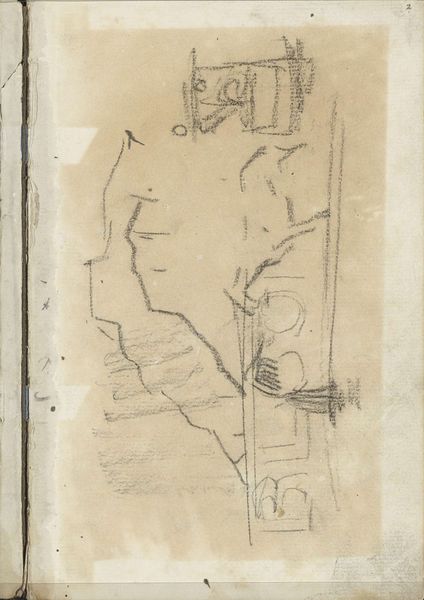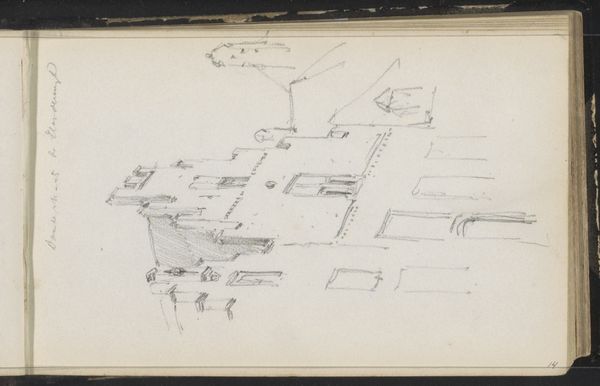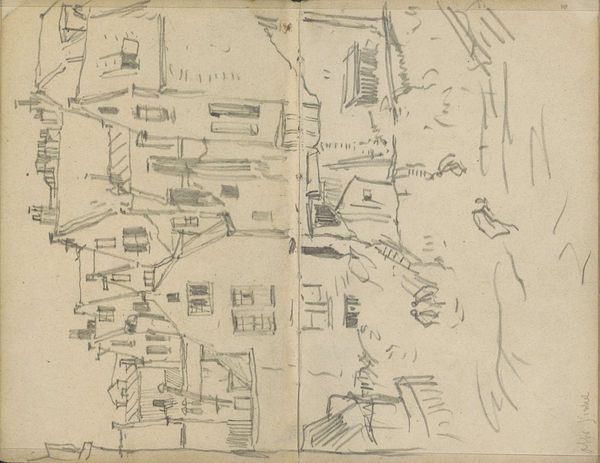
drawing, paper, pencil
#
drawing
#
aged paper
#
light pencil work
#
quirky sketch
#
sketch book
#
paper
#
personal sketchbook
#
idea generation sketch
#
sketchwork
#
sketch
#
pencil
#
sketchbook drawing
#
cityscape
#
storyboard and sketchbook work
#
sketchbook art
#
realism
Copyright: Rijks Museum: Open Domain
Curator: Immediately, I see potential here; a fragmented vision yet intriguing, unfinished maybe? Editor: This is "View of Buildings and a Cityscape with a Church" by Adrianus Eversen. The precise dating is difficult, situated somewhere between 1828 and 1897. It is a pencil sketch on paper. Curator: Fragmented then—it very much captures a sense of incompleteness. See the pencil strokes—light but certain—almost like a recollection forming on the page. The form hints at the cityscape, a visual structure still in formation. Editor: Note the paper itself—aged and patinated, its very texture bearing witness to time, almost an artifact of daily studio labor—presumably a page torn from a personal sketchbook. The artist's hand evident in the work is almost an intimate dance between intention and material constraints, the rough quality of line perhaps dictated by readily-available materials or working conditions. Curator: Yes, its material existence is integral. Let us consider the architectural form suggested. See the lines attempting depth and recession, particularly in that uppermost cityscape sketch; the spire reaching up, an echo of cultural values and hierarchies attempting order upon a potentially chaotic urban reality. Editor: Agreed. Eversen’s choice of pencil aligns to the realities of an increasingly urbanizing world; the fleeting nature of development captured in these ephemeral lines and marks, where he seemingly chose the expediency of sketching over labored painting methods. Also note how these various "views" sit on the page; is Eversen laying out different scenes or iterations—akin to pages from a film storyboard or working drawings, all coexisting in temporal unity? Curator: A powerful proposition! The layout gives the impression of various frames of a visual narrative. But it is precisely the contrast in clarity that interests me: the upper sketch seemingly resolving into a comprehensive whole, with lower studies remaining provisional—demonstrating perhaps how perceptual structures need continual refinement through compositional methods. Editor: I am left considering just how essential "craft" remains, from Eversen selecting the page from his book to these fragile pencil gestures –a powerful testimony of our collective effort in viewing and giving importance to quotidian subject matter and techniques. Curator: Quite so. The image, in all its incompleteness, reveals an intriguing dance between form and fleeting observation.
Comments
No comments
Be the first to comment and join the conversation on the ultimate creative platform.
